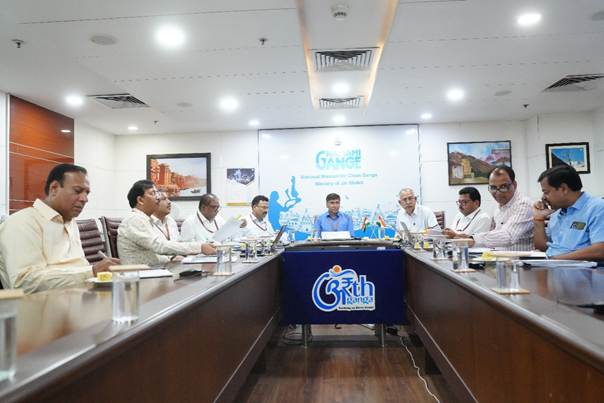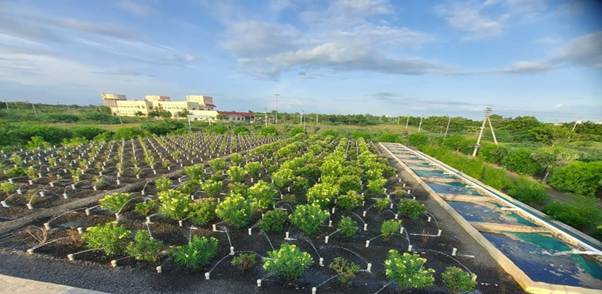The National Mission for Clean Ganga (NMCG) on Wednesday approved a series of projects aimed at pollution control and river rejuvenation in the 61st Executive Committee meeting, chaired by Director General Rajeev Kumar Mital.
Among the key approvals, the Executive Committee sanctioned sewerage management projects worth over ₹900 crore. A major project in Moradabad, Uttar Pradesh, focusing on the prevention of pollution in the Ramganga River, received the green light. The ₹409.93 crore initiative includes the construction of two sewage treatment plants (STPs) with capacities of 15 MLD and 65 MLD in Zone-3 and Zone-4 respectively. Additionally, five major drains in the region will be intercepted and diverted to minimize direct sewage discharge into the river.
In Bihar, a project in Arrah town was approved at an estimated cost of ₹328.29 crore. This includes the construction of a 47 MLD capacity STP and a 19.5 km sewer network. Implemented under the Hybrid Annuity Model, the project also covers the plant’s operation and maintenance for 15 years. The scheme aims to provide a long-term solution to sewage issues in Arrah and reduce untreated wastewater flowing into the Ganga.
Another major project was approved for Kanpur city in Uttar Pradesh, targeting the interception and diversion of 14 untapped drains. With an estimated cost of ₹138.11 crore, the initiative is expected to significantly improve the city’s drainage and sanitation system by channeling sewage to treatment plants through newly proposed sewage pumping stations and manholes.
In West Bengal, the Executive Committee approved an Integrated Faecal Sludge Treatment Plant (FSTP) for Pujali Municipality under the Namami Gange programme. With a total cost of ₹5.96 crore, the project involves setting up an 8 KLD capacity facility aimed at improving urban sanitation and protecting water resources.
The Committee also cleared a nature-based solution project for the rejuvenation of the Yamuna River in Delhi. The initiative includes the installation of pilot CAMUS-SBT (Continuous Advanced Mite Utilizing System – Soil-Based Treatment) plants in the Shahdara drain to treat liquid pollutants. These 5 MLD capacity plants aim to meet water quality standards set by the National Green Tribunal (NGT).
Further, the EC approved the establishment of the NMCG-IIT Delhi-Dutch Collaboratory for Intelligent River Systems and Clean Yamuna (IND-RIVERS), under the India-Netherlands Water Strategic Partnership. The collaboratory will serve as a centre of excellence focusing on urban rivers and nature-based solutions, bringing together academia, government, and international expertise to develop action-oriented research and practical interventions.
The meeting also approved a project for the study and documentation of traditional wooden boat-making practices that have existed for centuries in the Ganga basin.
Additionally, the Delhi Development Authority’s Biodiversity Parks will be developed as Knowledge cum-Skill Development Centres for the National Mission for Clean Ganga. With a sanctioned cost of ₹8.64 crore, the initiative will be implemented in partnership with Delhi’s Yamuna Biodiversity Park, serving as a hub for research, education, and skill development in river conservation.
According to the official statement, the approved projects are expected to provide a strong impetus to the ongoing efforts under Namami Gange, contributing to pollution control, sustainable water management, and the preservation of riverine heritage.





















